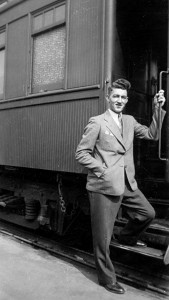On Saturday, September 24, CMU President Cheryl Pauls will present the 2016 Distinguished Alumni Awards to Peter Guenther, Adrienne Wiebe, Ron Toews, and Brad Leitch.
The Distinguished Alumni Awards celebrate alumni who, through their lives, embody CMU’s values and mission of service, leadership, and reconciliation in church and society. The awards are presented to alumni from CMU and its predecessor colleges: Canadian Mennonite Bible College (CMBC) and Mennonite Brethren Bible College (MBBC)/Concord College.
We spoke with this year’s award recipients.
Working at a prison is an unconventional summer job for a student, but that’s what Peter Guenther did while studying at CMBC.
At the age of 19, Guenther worked at the Provincial Correction Centre in Prince Albert, SK.
“While it was pretty dull and boring standing at various points and being a corrections officer, I saw the harshness of prison and the opportunity to make a difference,” he says.
One older gentleman who worked as a shift supervisor had a big influence on Guenther.
“He’d come talk to me about what was happening, reflect with me on how things could be better, and encouraged me to think of corrections as a career.”
That summer had a profound impact on the direction Guenther’s life has taken. In the years since, his professional career has focused on providing safe, healing, and supportive spaces for offenders.
He has worked as a senior bureaucrat and head of numerous correctional institutions, both provincial and federal.
Guenther possesses a deep commitment to social justice that dates back to his time in high school. His interest in helping the less fortunate was developed at CMBC, where he earned his Bachelor of Theology.
“What struck me and shaped me while studying both the Old and New Testaments was the biblical imperative to help and work with marginalized people,” Guenther says.
After CMBC, Guenther completed a bachelor’s degree in sociology at the University of Saskatchewan and a Master of Criminology at the University of Ottawa.
He worked for 39 years in corrections, serving as the head of numerous correctional institutions including director of the Saskatoon Correctional Centre, warden of the Saskatchewan Penitentiary, and executive director of the Regional Psychiatric Centre in Saskatoon.
Guenther says it was the opportunities to lead and make a difference that he most enjoyed about his career.
He became known as a compassionate, principled, and respected leader who worked to reduce harm, violence, and recidivism.
Highlights from his career include increasing programming for women, and access to mental and spiritual support services for inmates and released offenders.
“It was exciting for me to see offenders complete those programs and move through the system, and eventually be released as law-abiding and productive citizens,” Guenther says. “The whole process of not simply warehousing offenders but treating them was most exciting.”
Guenther’s interest in restorative justice has led to volunteer work that includes service on the board of Saskatoon Community Mediation and the advisory committee for Circles of Support and Accountability, an organization with groups across the country that support men and women who have committed serious sexual offences.
Guenther and his wife, Marilyn, live in Saskatoon, where they attend Nutana Park Mennonite Church.
He is both excited and humbled to be receiving a CMU Distinguished Alumni Award.
“It’s very gratifying to be recognized, especially in this career,” he says. “It’s not the typical Mennonite career, but I’m very pleased and proud of the impact that I’ve had with both staff and offenders.”
When Adrienne Wiebe recalls her time at MBBC, learning to think critically – and rooting that critical thinking in faith – sticks out.
“I learned that God wants shalom for the world, and that we as Christians are part of participating and building towards that,” Wiebe says. “That set the groundwork for how I approach life.”
Wiebe, who holds a PhD in Anthropology from the University of Alberta, has sought to participate in building toward shalom via a career in international development.
Following college, Wiebe travelled in South America for nine months. After falling in love with Latin America, she returned to her native Edmonton to do a Master’s degree in Geography. A year of fieldwork in Ecuador followed.
After returning to Edmonton, Wiebe worked for several years with Central American refugees at the Mennonite Centre for Newcomers. In the meantime, she married Arturo Avila, a Chilean political refugee living in Edmonton, and they had two children.
From 1992 to 1996, their family lived in a Mayan village in the highlands of Guatemala, where Wiebe and Avila did community development work with a small Canadian NGO.
Wiebe’s experience in Guatemala stands out as a career highlight.
“It was really mind-opening,” she says, adding that initially, she went to Guatemala with the idea that she was going to help the people there. She soon realized that the community had been there for hundreds of years, and she was “just a blip” in its history. “Then I got really curious about the history of the community and the nature of the community, so out of that grew the PhD research I eventually did.”
Wiebe did her PhD from 1997 to 2002, with many research trips back to Guatemala, and worked part-time in a hospital as the multicultural services coordinator. This was followed by seven years spent working full-time in research and program development with Indigenous communities for Alberta Health Services.
From 2010 to 2013, Wiebe and Avila served with Mennonite Central Committee (MCC) in Mexico, where Wiebe worked as a policy analyst and educator for Latin America.
Upon returning to Canada, Wiebe spent two-and-a-half years working as a provincial thrift shop coordinator for MCC Alberta.
This past March, Wiebe took on a one-year assignment in Ottawa with Oxfam Canada. At Oxfam, Wiebe works on evaluation and learning related to the organization’s global programs and campaigns on ending violence against women and girls around the world.
“I like the interaction between being an activist in some sense, and working with people and communities to understand what’s going on and how we can make things better, and then learning from that – reflecting on that experience, increasing our knowledge and awareness… taking that new knowledge and putting it into practice again,” she says. “I enjoy that research-action-reflection cycle.”
Wiebe says she feels honoured and humbled to be receiving a CMU Distinguished Alumni Award, adding that she sees her upcoming visit to Winnipeg as a great opportunity to reconnect with her alma mater.
“I’m looking forward to seeing what’s going on at CMU today.”
In the Saskatchewan farming community in which Ron Toews grew up, a godly farmer tapped him on the shoulder and said, “I believe God is calling you to leave the farm and study to become a pastor.” Hearing and responding to God, even when it feels risky, has defined Toews’s journey.
“That shoulder-tapping impulse is something that I’ve carried on,” says Toews, who currently lives in BC’s Fraser Valley, where he works as Director of Leadership Development for the Canadian Conference of Mennonite Brethren Churches.
Toews oversees Leaders2Learners (L2L), which connects leaders across Canada to learn together, share and pray together, and exchange resources that they have found helpful in their ministry settings.
Toews’s main focus is to serve pastors and churches by making tools available to leaders that are based upon their needs and ministry contexts.
“Through coaching we help leaders become attentive to the Holy Spirit’s promptings so that their lives can have maximum ministry impact,” he says.
For Toews, who holds an MDiv from the Mennonite Brethren Biblical Seminary in Fresno, CA and a DMin from Trinity Evangelical Divinity School in Deerfield, IL, his role with L2L is the latest in a life spent serving the church.
From 1987 to 2002, Toews and his wife, Dianne, pastored two churches: Kitchener Mennonite Brethren Church in Kitchener, ON, and Dalhousie Community Church in Calgary, AB.
When Toews was diagnosed with testicular cancer in 2000, he began to look closely at his life and calling. He realized one of the things he valued deeply was helping young people in their journeys to become pastors.
In 2002, he accepted a faculty position at the MBBS-ACTS seminary in Langley, BC where he spent five years as Assistant Professor of Leadership Studies.
He eventually ended up in the corner office at ACTS as interim principal, a role he accepted after going away to Africa for a month with Dianne to think and pray about the decision.
They returned to Canada to the news that their 24-year-old son, Nathan, had been killed in a car accident. The experience, Toews later told the MB Herald, “made cancer look like a cakewalk.”
Toews left ACTS after 21 months, and eventually accepted a leadership development role with the BC Mennonite Brethren conference, where he served from 2009 to September 2012.
Toews began working in the current role he’s in shortly thereafter. He enjoys the job.
“No two days are ever the same,” he says. “Helping leaders and churches be on mission with Jesus is a privilege.”
In spite of personal challenges, Toews has remained steadfast in his faith, trusting in God and serving others so that he might “make a kingdom difference.”
He views receiving a CMU Distinguished Alumni Award as a tribute to the faithful farmer who tapped him on the shoulder, and many others who have invested in him and contributed to who he is today.
“Dianne and I give thanks to God for his faithfulness over a life that has taken some twists and turns,” he says. “We give God thanks for his ongoing journey with us.”
At 30, Brad Leitch (nee Langendoen) is carving out an impressive career as an award-winning filmmaker, peacebuilder, and playback theatre actor who approaches difficult topics with empathy, compassion, deep listening, and boundless energy.
“I firmly believe there’s so much overlap between peacebuilding and documentary filmmaking,” Leitch says, adding that both require empathy, curiosity, flexibility, and adaptability.
Leitch is the executive producer and founder of Rebel Sky Media, a film and video production company in Winnipeg, MB. His directorial work has explored topics of peace and justice in Canada, Iraqi-Kurdistan, Israel, Palestine, and the United Kingdom.
Some of his work is currently featured in the Canadian Museum for Human Rights in Winnipeg, and in a permanent exhibit at the Pier 21 Museum of Immigration in Halifax, NS.
“The majority of the projects I work on these days have led to a more explicit merge of peacebuilding and filmmaking, through the topics explored and through the lives of individuals who are modeling what peace and reconciliation may look like,” Leitch says. “The film itself then becomes a kind of tool and resource that can spur the audience’s own imagination for creating peace. This is exciting to me.”
Leitch’s interest in theatre and film was sparked growing up in Fenwick, ON, a community located 30 km. west of Niagara Falls.
He studied filmmaking for two years at the Center for Creative Media, a Christian film school in Texas.
Leitch, who comes from a Christian Reformed background, was appalled by the support for the war in Iraq that he witnessed when talking to Christians in Texas.
He developed an interest in peacemaking that led him to Christian Peacemaker Teams. He was part of a two-week delegation to Palestine in 2008.
While studying Peace and Conflict Transformation at CMU, Leitch joined Winnipeg’s Red Threads for Peace Playback Troupe.
He is currently in the midst of a Kickstarter campaign to fund a documentary about playback theatre: participatory, improvisational theatre where audience members share a story from their life and an acting troupe immediately plays back that story using a variety of improv theatre forms.
In the field of peacebuilding, playback theatre is being used as a conflict transformation tool in education, mediation, psychotherapy, and trauma healing.
Leitch is also about to premiere Reserve 107: Reconciliation on the Prairies, a documentary that explores the goings-on in Laird, SK, where Mennonites and Lutherans have committed themselves to finding some justice for the Young Chippewayan First Nation whose land they have settled on.
“I’m very interested in seeing what peacebuilding looks like in a practical sense, and film is a great tool for showing that,” Leitch says.
“It’s something that can be easily missed: That these peacebuilding journeys are long journeys that people commit to and embark on, and they can sometimes be fragile,” he adds.
For Leitch, receiving a CMU Distinguished Alumni Award is both a surprise and an honour.
“It means a lot coming from a community I have so much appreciation and respect for,” Leitch says. “I am grateful.”

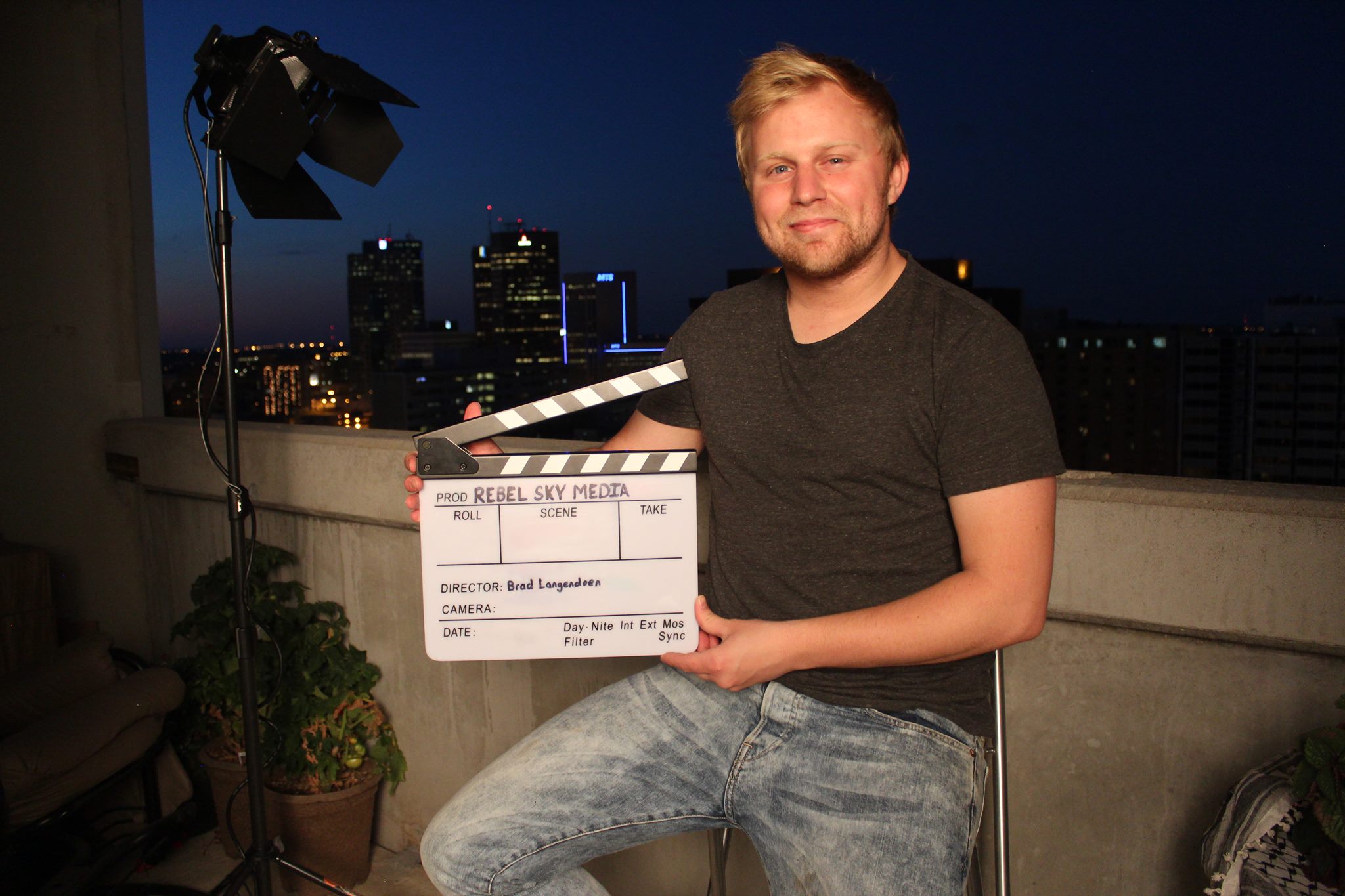
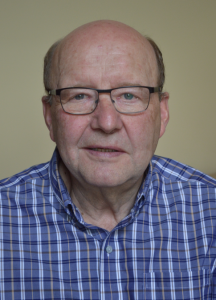
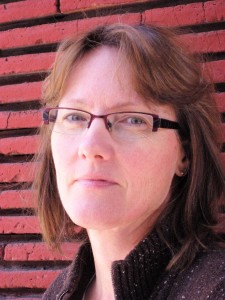
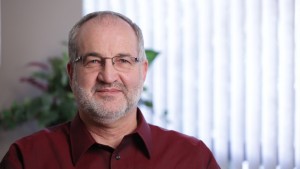
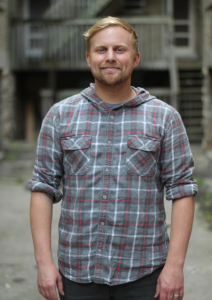
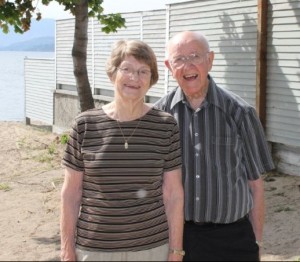
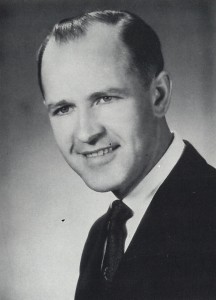
![2015-06-04 - Henry Poettcker [01]](http://www.cmu.ca/media_archive/wp-content/uploads/2015/06/2015-06-04-Henry-Poettcker-01-300x199.jpeg)
